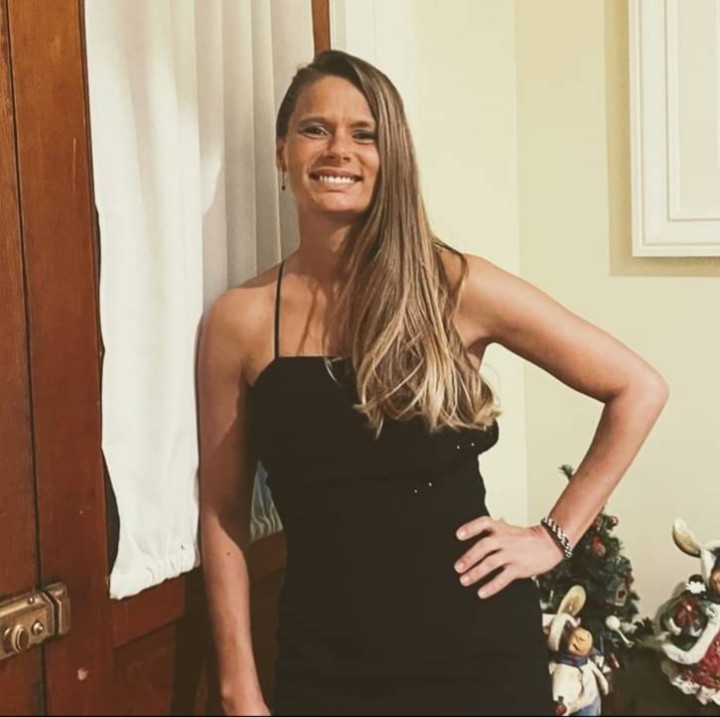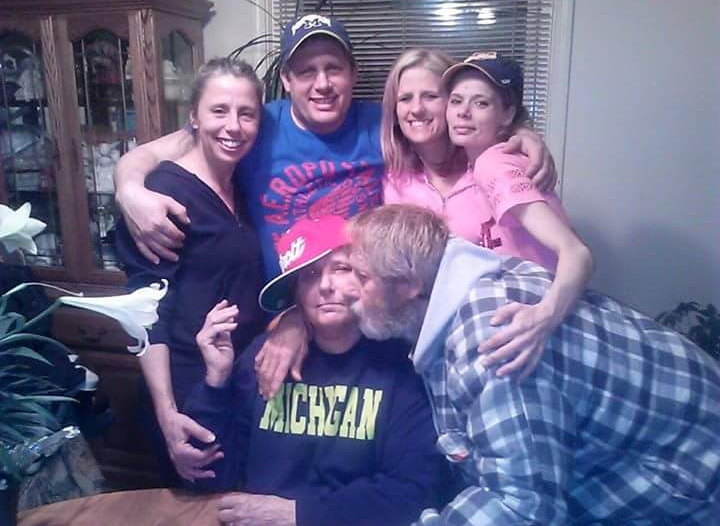Lindsay DeGain
Lindsay DeGain was no stranger to substance use disorder. The daughter of an alcoholic, she witnessed several adult siblings struggle with substance abuse and mental health issues of their own.
Despite their challenges, she loves her family more than anything. In her adulthood, two of her four siblings passed away at the age of 39; another passed at the age of 41. Both of her parents have also passed away.
The substance abuse started with the painkillers her doctor prescribed her for chronic back pain. She used drugs to numb the pain of grief and loss.
“It was not a good life. I was just existing. I would wake up, roll over, and grab my pill bottle. First thing you know, it was all I would think about,” she said,
referring to drug abuse. “It took precedence over everything, every area of my life.”
In 2014, she moved to Port Huron to focus on her sobriety. She credits her Christian faith and her community with Blue Water Recovery and Outreach Center (BWROC) for helping further her recovery.
“I have so many amazing people in my life now,” DeGain said. “First and foremost, my faith, but connection and community is, for sure, another key element for me (of my recovery). It’s the healthy relationships and people that come alongside me and hear me and help me navigate the difficulties of life so that I don’t have to turn to drugs to get through because it is hard. It’s still very, very, very, very hard, but I’m able to cope differently today.”

A nonprofit recovery community organization founded in 2017, BWROC offers a unique, peer-driven, non-clinical support system.
BWROC’s employees, peer recovery coaches, and volunteers are usually in recovery themselves. This real-world experience allows them to empathize with program participants who are new to or struggling with recovery. The organization was awarded the prestigious CAPRSS Accreditation by the Council on Accreditation of Peer Recovery Support Services, a testament to BWROC’s dedication to providing participants with the highest quality service.
Healing Relationships and Finding Solace in her Faith
While DeGain’s familial relationships were loving and close, they also came with dysfunction. Before the medical community understood how destructive and addictive opiate painkillers could be, she was routinely prescribed massive amounts of pills for back pain.
DeGain sunk further into her substance abuse. She went through a divorce and couldn’t hold a job, so she moved in with her parents.
Her family urged her to seek treatment the first time.
“It was all for my family. It wasn’t for me. It was, you need to go to treatment or you’re not going to have a place to live,” she said. “And my mom sent me with a little bit of money for while I was in there. And I thought, ‘Oh, I’m going to save this money for a half ounce when I get out.’ I was so uneducated still.”
Not knowing what to do or how to help, her family enabled her substance abuse.
“I think because (my family) felt bad there was a lot of codependency. Maybe there was guilt involved. Unbeknownst to them – but I’m sure very well-meaning – they allowed me to continue the life I was living,” DeGain said. “I would just lay in bed all day high. I would just take all my pills. I would manipulate my brother and my parents into sharing theirs with me because I was basically just a big baby, and I would throw a fit until they gave in because I was sick. I was dope sick.”
Finally, the threat of losing custody of her then-five-year-old son made DeGain realize how badly she needed treatment. She committed to recovery for herself.
She had several more relapses – as is a common part of recovery – that were compounded by the loss of her brother, sister and father within the span of three years. Her mental health steadily declined.
“My spirit was crushed, and I was heartbroken,” she said. “I was angry, bitter, afraid, and miserable. That pain & desperation was far worse than the life I lived during my addiction, and I couldn’t live like that.”
Eventually, Degain decided she was – and still is – worthy of a full life. She slowly untangled herself from unhealthy relationships. She formed new, positive relationships, and – for the people in her life that were willing to learn and grow – healed old relationships that were stuck in unhealthy behavioral patterns.
Her desire and determination to make a better life for herself has kept her going through recovery. She also turned to her faith.
“My life has literally been transformed, and I believe it’s all because of the Glory of God,” she said. “Yes, I put the work in, but there is no way I would be able to do this by myself.”

Life After Addiction
Now, DeGain, 41, is raising her three boys on her own and has a close relationship with her surviving sibling. While she still experiences difficulties, her anxiety is much lower, and she has learned how to cope with the pain.
“I’m a better mom. I’m an active mom. I’m not consumed by the grief like I was, although I miss my family every day,” she said. “I take care of myself now. I eat better. I gave up smoking. I’ve been cigarette free for three-and-a-half years. I mean, I’m free.”
If you or someone you know is struggling with addiction, learn more about what you can do by contacting the Blue Water Recovery and Outreach Center at (810) 689-4858 or via email at contact@bwroc.org.
